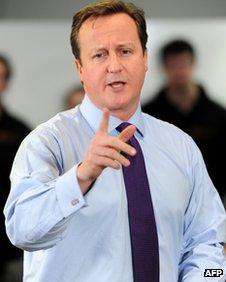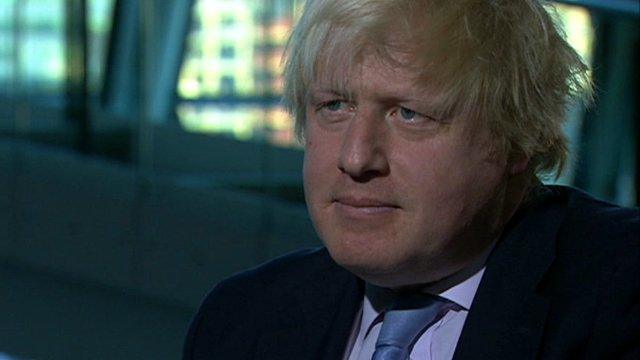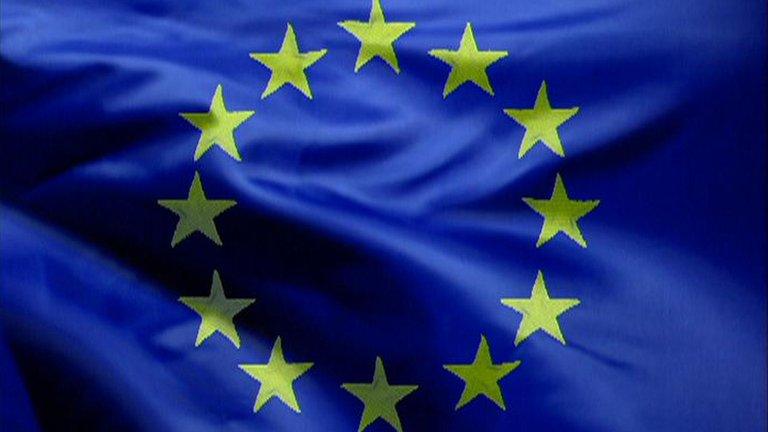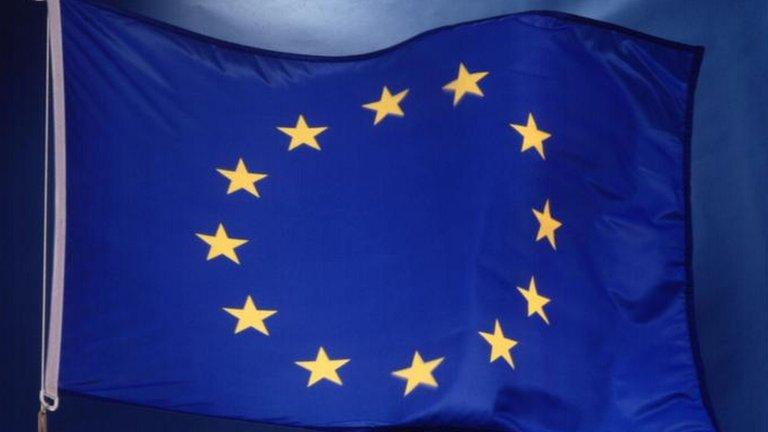Cameron pledges 'real change' on EU at next election
- Published

Mr Cameron will set out his party's long-term European policy shortly
The Conservatives will offer voters the prospect of "real change" in the UK's relationship with Europe at the next election, David Cameron has said.
The prime minister said his party could "go further" in forging a new basis for co-operation if it was governing alone, rather than in a coalition as now.
Mr Cameron is to make a long-awaited speech on Europe, with many of his MPs calling on him to pledge a referendum.
The UK was better off inside the EU but changes were needed, he told the BBC.
Mr Cameron has said steps to closer economic integration in the eurozone stemming from the euro crisis will necessarily alter relationships within the EU.
He believes there will be opportunities for the UK to recalibrate its relationship with the EU, further protecting British interests in areas such as the single market and financial services but also potentially repatriating certain powers.
'Effective'
It has been suggested that any "new deal" with Europe could then be put to a vote in a UK-wide referendum at some point during the next Parliament.
Many Conservative MPs want the prime minister to go further and promise to hold a so-called "in-out" vote to determine whether the UK remains in the EU at all.
Speaking to the BBC Radio 5 live, Mr Cameron would not be drawn on the contents of his impending speech or whether he would commit to some kind of referendum in his party's next election manifesto.
But he stressed. "The speech will demonstrate very clearly that it is the Conservative Party at the next election that will be offering a real change in terms of Europe and a real choice about that change in Europe."
He acknowledged differences with his Liberal Democrat coalition partners, who are broadly supportive of the UK's existing status in Europe.
But he defended the coalition's record on European negotiations since it came to power, adding that he was confident of getting a "decent deal" on the EU's long-term budget.
"We have had an effective European policy," he said.
"I think we have done a good job over Europe in the last two and a half years but a Conservative government would obviously be able to go further."
'Matter of trust'
It was in the UK's economic interest to remain a full member of the EU to enable the country to influence the direction of the single market, he added.
"We want to be round that table writing the rules of that market," he said.
"That's why I don't think it is right to aim for a status like Norway or Switzerland where basically you have to obey all of the rules of the single market but you don't have a say over what they are."
The UK Independence Party, which campaigns for UK withdrawal from the EU, said Mr Cameron had to do more than offer "vague promises" on returning powers.
"We are talking about a matter of trust," said the party's leader Nigel Farage.
"He sits there and thinks his great extended tease about this forthcoming Europe speech is entertaining. It is not."
"No matter what he says now, after so many broken promises, so many 'cast-iron guarantees', can anybody honestly believe that he will be telling the truth this time?
"The simple fact is that he wants us to stay in the European Union no matter how it is configured."
- Published12 December 2012

- Published26 November 2012

- Published27 November 2012

- Published24 September 2015